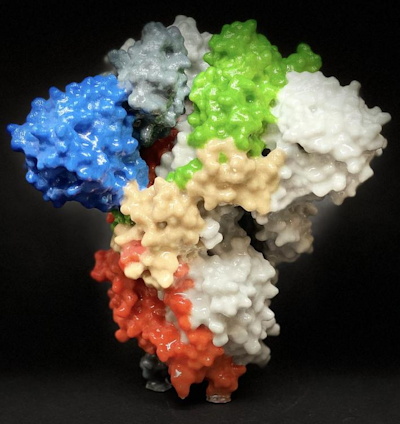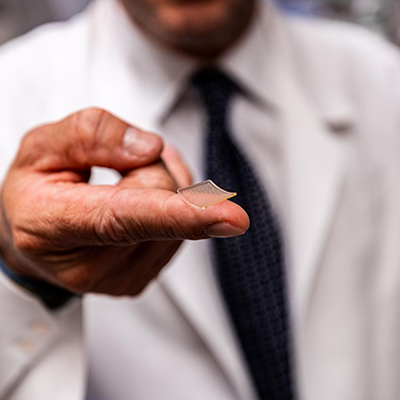April 9, 2020 -- As researchers urgently work to develop vaccines for COVID-19, many strategies have been considered. Now, a parainfluenza virus 5 (PIV5)-based vaccine expressing MERS-CoV spike protein may provide an avenue for a COVID-19 vaccine based on the similarity of the two viruses, according to a study published in mBio on April 7.
Middle East respiratory syndrome (MERS) emerged in 2012, with the causative agent identified as novel MERS-CoV. With a high mortality rate, researchers were eager to develop efficient vaccines against the virus. MERS relies on the spike protein to gain viral entry, similar to SARS-CoV-2. While no vaccines are approved against MERS-CoV yet, there are several candidates using a variety of strategies.
Researchers from the University of Iowa and the University of Georgia have developed an otherwise innocuous PIV5 vaccine candidate with one key feature -- it possesses the MERS spike protein. This means it could also be a vaccine candidate for SARS-CoV-2.

"Our new study indicates that PIV5 may be a useful vaccine platform for emerging coronavirus diseases, including SARS-CoV-2, the virus causing the ongoing COVID-19 pandemic," said Dr. Paul McCray, professor of pediatrics at the University of Iowa Carver College of Medicine. "Using the same strategy, vaccine candidates based on PIV5 expressing the spike protein of SARS-CoV-2 have been generated. We are planning more studies in animals to test the ability of PIV5-based vaccines in preventing disease caused by SARS-CoV-2."
The PIV5-MERS-S vaccine has been shown to be effective in low doses in mouse models. Four weeks after the mice received the vaccine, they were exposed to a strain of the MERS virus. All the mice immunized with the modified PIV5 virus survived MERS virus infection.
Protection is achieved with the production of neutralizing antibody leading to an influx of T cells into the lungs following vaccination. The ability of PIV5-MERS-S to generate cellular and humoral immune responses in mice may be in part attributed to the ability of PIV5 to express the MERS S protein in its native conformation.
PIV5 as a viral vector is attractive because it is not known to cause enhanced disease and does not cause adverse health effects. The fact that the PIV5 vaccine is sufficient at such low doses is also beneficial when mass-producing vaccines for immunization.
While this vaccine was very effective in animal models, further testing is needed for both clinical trials of the MERS vaccine and to study the use of PIV5 to express the S protein from SARS-CoV-2.
Do you have a unique perspective on your research related to immunology or virology? Contact the editor today to learn more.
Copyright © 2020 scienceboard.net








